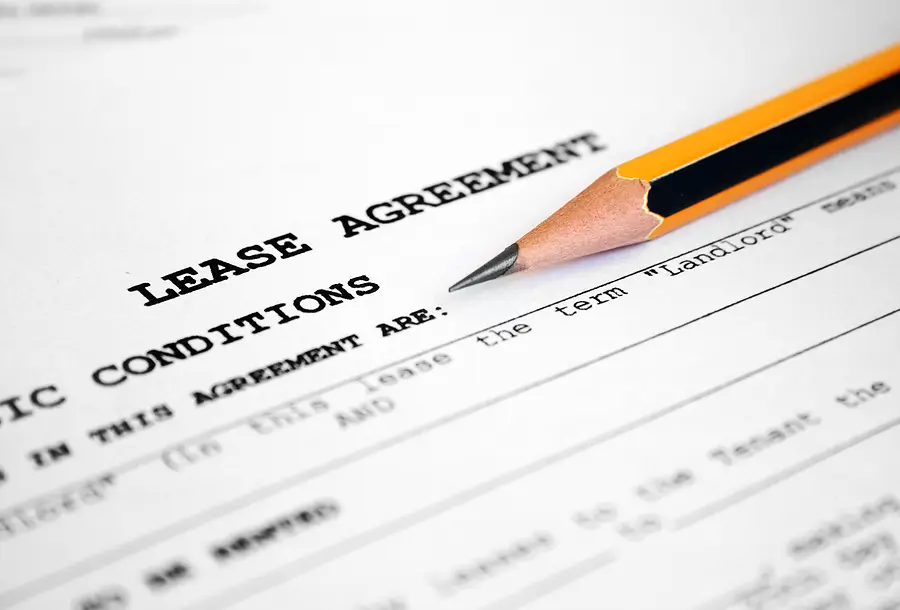Lease agreements are designed to set clear expectations, ensuring a smooth experience for both landlords and tenants. But let’s be real—violations of lease agreements happen all the time. Some are minor, like forgetting to take out the trash, while others—like unpaid rent or unauthorized tenants—can cost you time, money, and legal liability.
These violations don’t just disrupt your rental business; they can also lead to property damage, lost income, and eviction proceedings if not handled properly. The good news? Most lease violations are preventable if you know what to look for. By recognizing the most common lease violations early, you can take steps to address them before they turn into major issues.
This article will discuss the most common lease agreement violations in Phoenix.
Most Frequent Lease Violations That Landlords Face in Phoenix
Lease violations are an inevitable part of managing rental properties, and landlords in Phoenix encounter them more often than they’d like. Understanding the most common issues can help you address problems quickly, protect your investment, and maintain a smooth landlord-tenant relationship.
1. Late Rent Payments
Rent should be paid on time—no excuses. But many landlords deal with late payments more often than they’d like. Some tenants forget while others make a habit of pushing the due date. Either way, it’s a problem.
How to handle it: Charge late fees and enforce them. Offer online payment options to make it easier to pay rent on time. Be firm but fair. If a tenant keeps paying late, it might be time to terminate the lease and find someone more reliable.
2. Unauthorized Pets
Not every tenant follows the pet policy. Some sneak in a dog or cat without permission, thinking it won’t be a big deal. However, violations of lease agreements regarding unauthorized pets can lead to property damage, noise complaints, and even legal issues if the pet causes harm.
What to do: Make sure your lease clearly states pet rules. Conduct regular inspections to catch unauthorized pets early. If a tenant has a pet, give them a choice: remove it or pay the pet fee.
3. Unauthorized Tenants
Maybe a friend needs a place to crash, or perhaps a significant other moves in quietly. Either way, they’re not supposed to be there if they're not on the lease. Unauthorized occupants add wear and tear to the leased property and can create legal headaches if issues arise.
How to prevent this: Set clear guest limits in the lease. Look for signs of long-term guests, like extra cars or mail in their name. If someone is staying too long, have them added to the lease.
4. Excessive Noise
Noise complaints can be a nightmare, especially in multi-unit buildings. Whether it’s late-night parties or constant loud music, excessive noise can drive neighbors crazy and lead to bigger disputes. These situations often result in rental agreement violations, which can escalate if not addressed.
How to handle it: Include clear quiet hours in the lease. Record any noise complaints and warn tenants in writing. If the noise doesn’t stop, take formal action.
5. Property Damage Beyond Normal Wear and Tear
Every rental will see some wear over time, but major damage—holes in walls, broken appliances, ruined floors—is a different story. Some tenants are just careless, while others may even cause damage on purpose.
Protect yourself by doing a detailed move-in inspection and taking photos. Set clear rules about maintenance and repairs. Hold security deposits to cover any serious damage.
6. Illegal Activities
This is the worst-case scenario. Some tenants use rental properties for illegal activities, whether it’s drug use, unauthorized businesses, or something worse. If this happens, it constitutes serious violations of lease agreements and needs to be addressed immediately.
What to do: If you suspect illegal activity, document everything. Contact authorities if needed. Start the eviction process if the lease has been violated.
How to Handle Lease Violations
When a tenant breaks the lease, the key is to act quickly and professionally. Here’s what to do:
- Send a lease violation notice. This official warning outlines the problem and gives the tenant a deadline to fix it.
- Communicate clearly. Some tenants may not realize they’re violating the lease. A conversation can sometimes resolve the issue.
- Follow legal procedures. If the tenant fails and the violations continue, document everything and follow Arizona’s landlord-tenant laws for lease enforcement and eviction.
- Consider mediation. If possible, work out an agreement before things escalate to court.
How to Avoid Lease Violations in the First Place
Prevention is always better than dealing with issues that lead to violations of lease agreements down the road. Here’s how to minimize problems before they start:
- Screen tenants thoroughly. Check the rental history, credit, and references to find reliable tenants.
- Make the lease airtight. Be specific about rules, fees, and consequences.
- Conduct regular property inspections. Catch minor issues before they turn into big ones.
- Keep communication open. A good landlord-tenant relationship can prevent many problems from escalating.
Stay Proactive with Lease Enforcement for Peace of Mind!
Dealing with lease violations can be a pain, but it doesn’t have to be a huge problem. Setting clear expectations and catching issues early can keep things running smoothly. By staying proactive and enforcing the rules, you can avoid most major headaches and protect your investment.
At Real Property Management Phoenix Valley, we take the stress out of property management. We know how to handle lease violations and keep tenants in line. Here's how we can help you:
- Enforce lease agreements: We make sure tenants stick to the rules and address violations right away.
- Screen tenants: Our tenant screening helps find reliable renters who are less likely to cause problems.
- Conduct regular inspections: We keep up with property maintenance, reducing wear and tear.
- Handle eviction proceedings: If things go south, we manage the eviction process to make it as smooth as possible.
Need help with your rental? Be our business partner, and let us handle tenant issues, enforce lease agreements, and keep your property in top shape!
FAQs About Lease Violations in Phoenix, AZ
How can landlords legally enter a rental property in Phoenix?
In Arizona, landlords must provide at least a two-day notice before entering a rental property, except in emergencies. This notice lets tenants know the landlord's intent to access the premises for reasons such as repairs or inspections.
What is considered a 'material and irreparable breach' by a tenant in Arizona?
A 'material and irreparable breach' refers to significant violations that threaten health and safety, allowing a property owner or a landlord to require a tenant's removal within 24 hours. Such breaches are serious and often require immediate action to resolve.
What is the process for returning a tenant's security deposit in Arizona?
In Arizona, landlords must return a tenant's security deposit within 14 business days after the tenancy ends. Along with the deposit, the landlord must provide the tenant with an itemized list of any deductions for damages beyond normal wear and tear.
Related Articles
Tips to Grow Your Portfolio With Strong Leasing Management Practices


